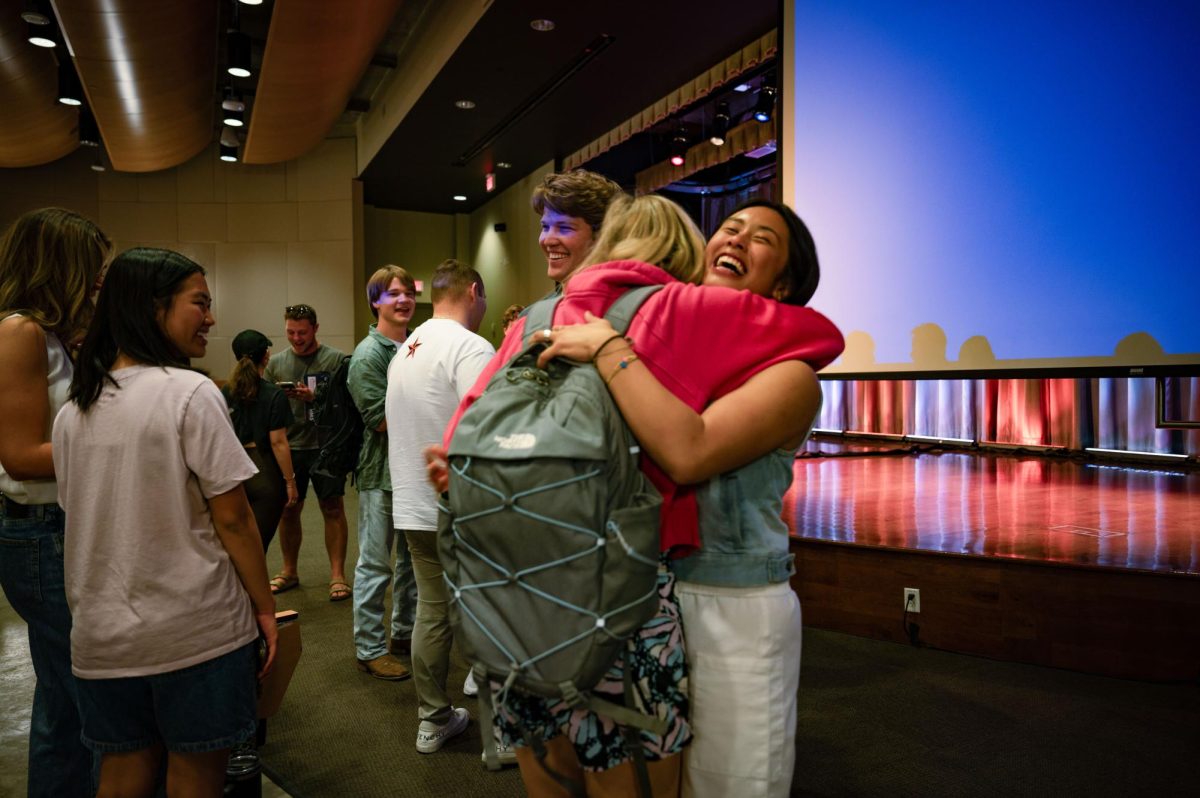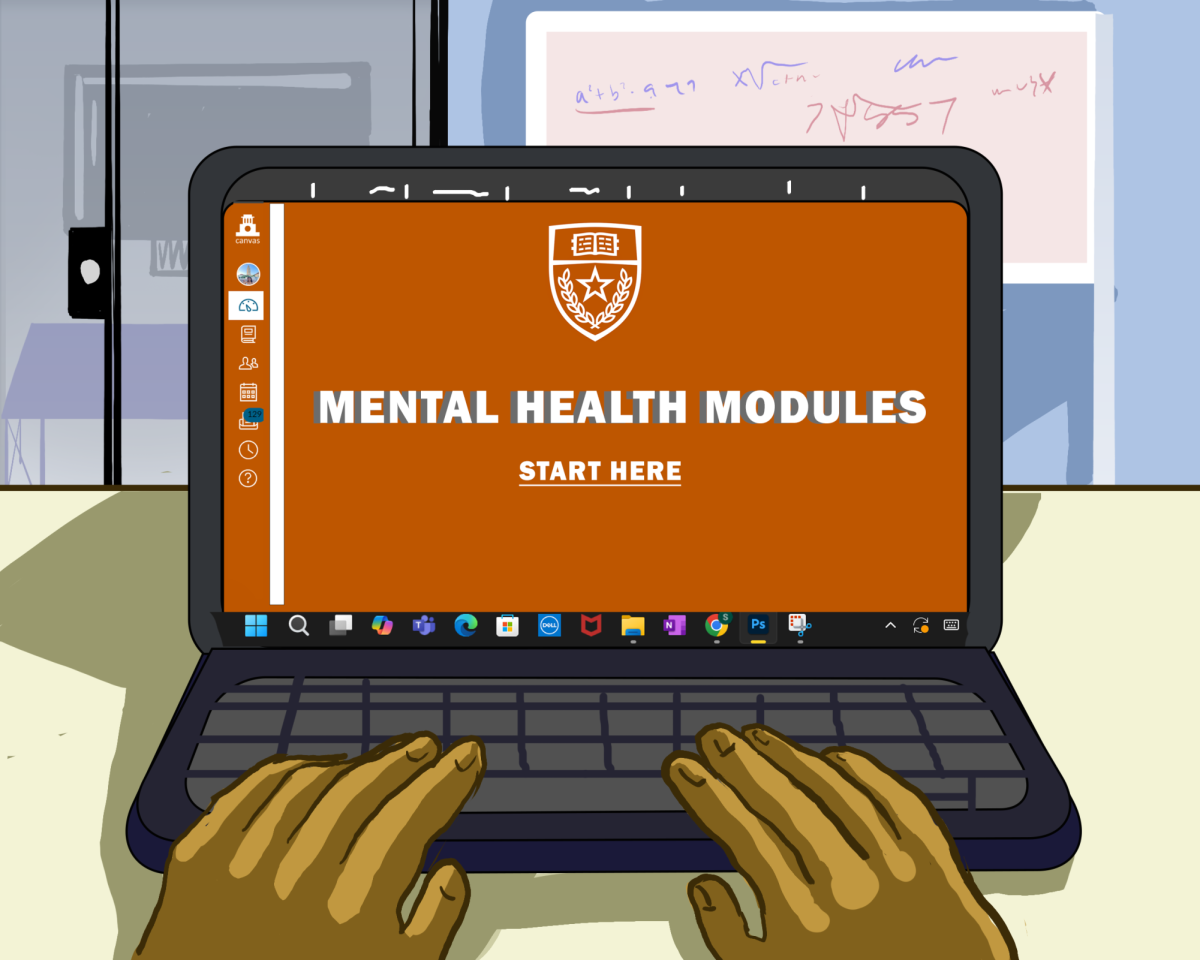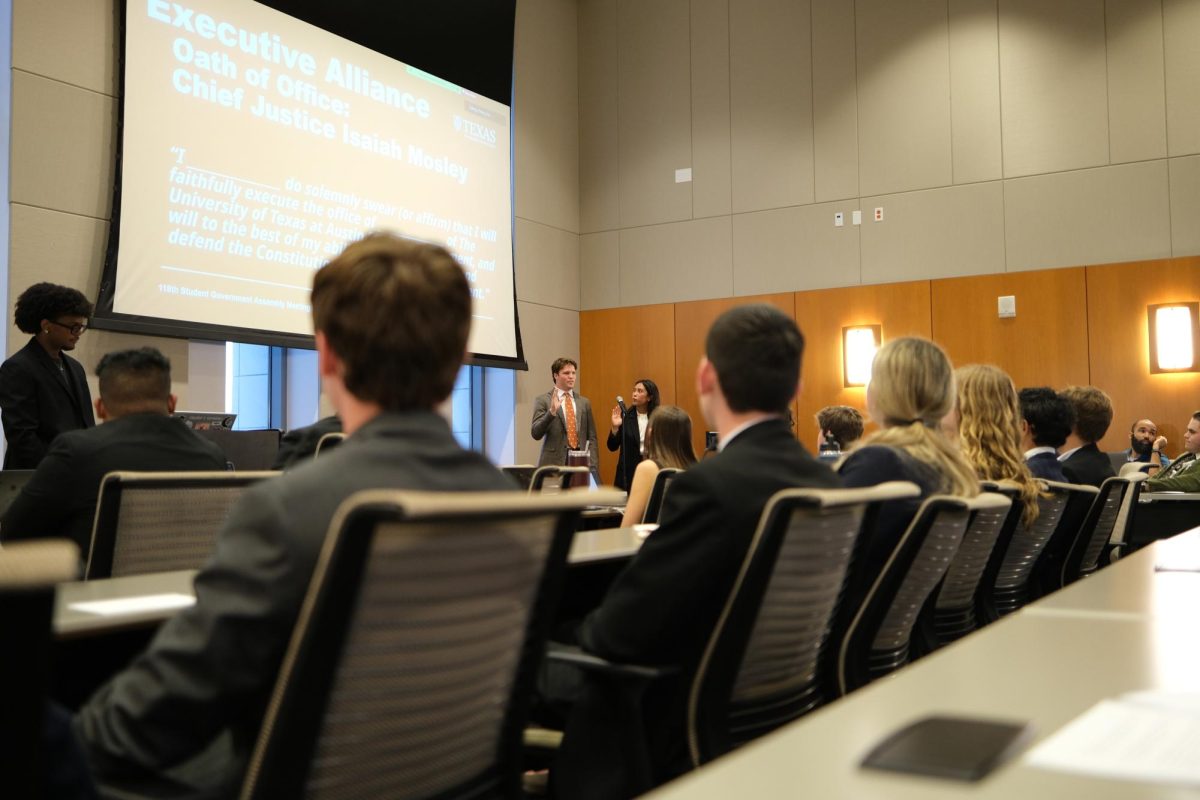Executive alliance candidates Hudson Thomas and Thierry Chu will serve as the 2025-26 Student Government president and vice president, the Election Supervisory Board announced Monday.
Thomas, a Plan II, government and history junior, and Chu, a Plan II and English junior, won against five other alliances. The pair ran on a platform focused on organizing a mental health week for students, implementing a centralized room reservation system for campus organizations and developing a database for community service opportunities.
Voting ran for two days starting on March 3, with voters ranking their choices in order of who they wished to vote for. When votes are counted, the least-voted alliance pair is disqualified from the running. The votes that originally went to that pair are distributed to voters’ second choices, with the pattern of eliminating the least-voted pair continuing until one executive alliance pair gathers at least 4,005 votes. Thomas and Chu accumulated 4,005 votes, with runner-ups Grayson Oliver and Elizabeth Tomoloju receiving 1,949.
“Just to get to this opportunity, I think is a testament to how great our university is, and how great the students here are to entrust people like Thierry and myself to run for this position,” Thomas said. “It’s just mind blowing. It really is. That we’ve come all this way, and it’s completely because of the students who have helped us and our friends.”
Earlier on Sunday, Student Government’s Supreme Court briefly disqualified Thomas and Chu after the court ruled their campaign exceeded the spending limit by more than 120%, a violation of the election code. However, before the board announced the election results, the Office of the Dean of Students overturned the disqualification, according to an email from the office shared with The Daily Texan.
“The process that the Supreme Court has taken is inconsistent with their own governing documents, Campus-Wide Election Code, University process, and fails to provide due process to the accused,” the email states. “This process has been flawed, and consequently this decision is invalid.”
Chu said the alliance plans to strengthen the University’s ties to Austin’s professional landscape to emphasize UT’s potential as an emerging innovation hub. She said many students struggle to access existing networking resources, such as Eureka, HookedIn and HornsLink, because the resources feel inaccessible to students.
“As student government, we can work through user interface resurface, like restructuring or incorporating (a professional network) into different pieces of your orientation and integration here at UT to get that in students’ hands more easily,” Chu said.
Thomas said the most rewarding part of their campaign has been forming strong bonds with their team. He said he hopes to bring this kind of connection to SG.
“Our campaign was really a microcosm of what is achievable at UT, which is that we really do have the greatest students in the world, and when we come together, there’s nothing we can’t accomplish,” Thomas said.














